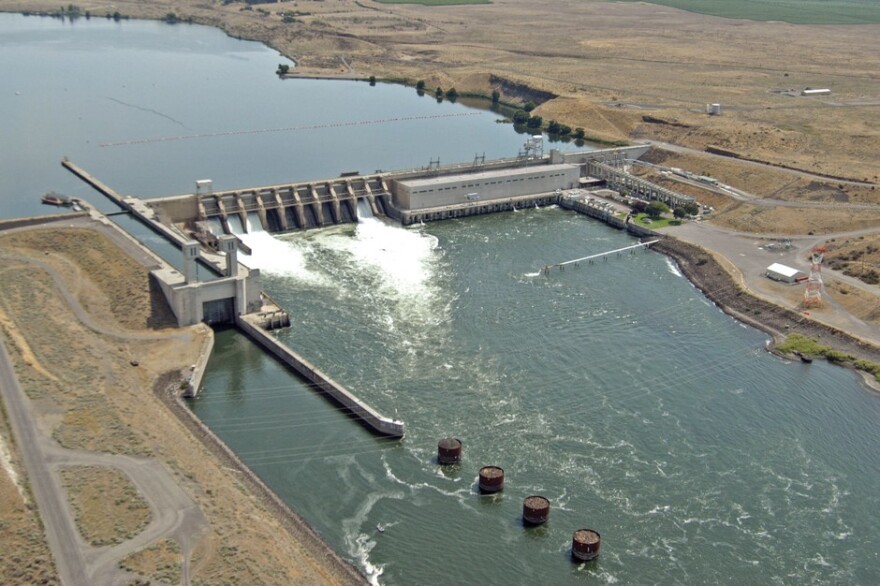The fate of the four controversial Lower Snake River dams will be a topic of study this summer. Washington politicians said they plan to weigh in then on the fate of the four controversial Lower Snake River dams.
At issue are salmon and steelhead runs that environmental groups said will go extinct if the dams remain in place. However, the dams provide services such as carbon-free electricity, easy access to irrigation, and grain transportation down the river.
“I think if we can develop confidence in the way to replace those services, it’s going to move this discussion a long way,” Gov. Jay Inslee said.
He did not say whether he thought the dams should remain in place or be breached.
At a roundtable hosted by Washington Conservation Voters Thursday, Inslee said he and Sen. Patty Murry, D-Washington, will detail a process in the next few weeks to continue discussions about the dams.
Earlier this year, Rep. Mike Simpson, R-Idaho, pitched a $33.5 billion proposal that suggested solutions – and funding – to supplement what could be lost if politicians agreed to remove or alter the dams. U.S. Congress must approve breaching the four dams on the Lower Snake.
However, Simpson’s proposal never gained traction among Washington politicians.
Instead, Inslee and Murray announced a separate plan to keep talking about the dams and services for irrigation, transportation and renewable energy they provide.
“I believe the way to advance this discussion, nationally and in our state, is to have a rigorous, robust and fast assessment of how to replace services if we breach those dams,” Inslee said at the roundtable.
Northwest tribes supported Simpon’s plan early in the debate. Shannon Wheeler, Nez Perce vice chairman, said salmon are running out of time.
At the roundtable, Wheeler said leaders should build on Simpson’s plan. He said the survival of salmon is important for all sectors of the economy.
The Nez Perce Tribe has an interest in more than just salmon, Wheeler said.
“We definitely have an interest in energy. We have an interest in transportation. We have 150,000 acres in agriculture,” Wheeler said. “We’re not just salmon people.”
However, salmon are an integral part of Northwest tribal culture, Wheeler said. Those cultural needs, guaranteed by the Treaty of 1855, are not being met, he said.
In fact, this summer members of the Nez Perce Tribe harvested around 3,000 spring chinook, which is less than one salmon per tribal member, Wheeler said.
Time is running out for salmon, and discussions must happen quickly, he said.
“If your business touches the water, then your business touches salmon,” Wheeler said.
Inslee said he and Murray want to talk to as many people in the state as possible. Inslee wants to hear from “everyone who has any particular interest, knowledge, insight, plan, or criticism.”
He said he wants to build public confidence with rational discussions.
Right now, Inslee said, people worry that all these services will disappear and nothing will replace them.
An outside group will lead the discussions and write a report by next summer, he said.
“We don’t have a lot of time with these salmon. So, we’re going to put the pedal to the metal,” Inslee said.
Copyright 2021 Northwest News Network


